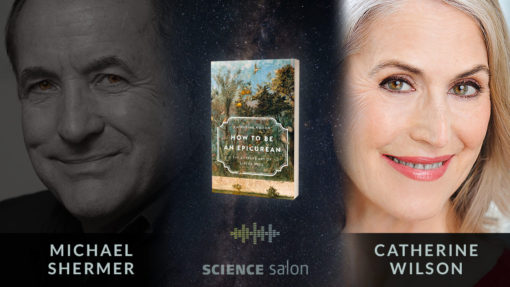
Ever since the Enlightenment philosopher David Hume outlined the “Is-Ought” problem—that we cannot derive an ought from an is, or we cannot determine the way something ought to be morally based on the way things are in nature (the classic example being slavery—because ants practice slavery that doesn’t make it natural and therefore acceptable for humans to practice slavery)—people have struggled to figure out on what basis should moral values be grounded. Of course, theists argue that God is that…

In Science Salon # 96 Michael Shermer speaks with Catherine Wilson about the ancient wisdom of Epicureanism: a philosophy of living well that promoted reason, respect for the natural world, and reverence for our fellow humans.
In Science Salon # 96 Michael Shermer speaks with Catherine Wilson about the ancient wisdom of Epicureanism: a philosophy of living well that promoted reason, respect for the natural world, and reverence for our fellow humans. PLUS, Jonathan Kay tells us what board games teach us about capitalism and how to modify it.










